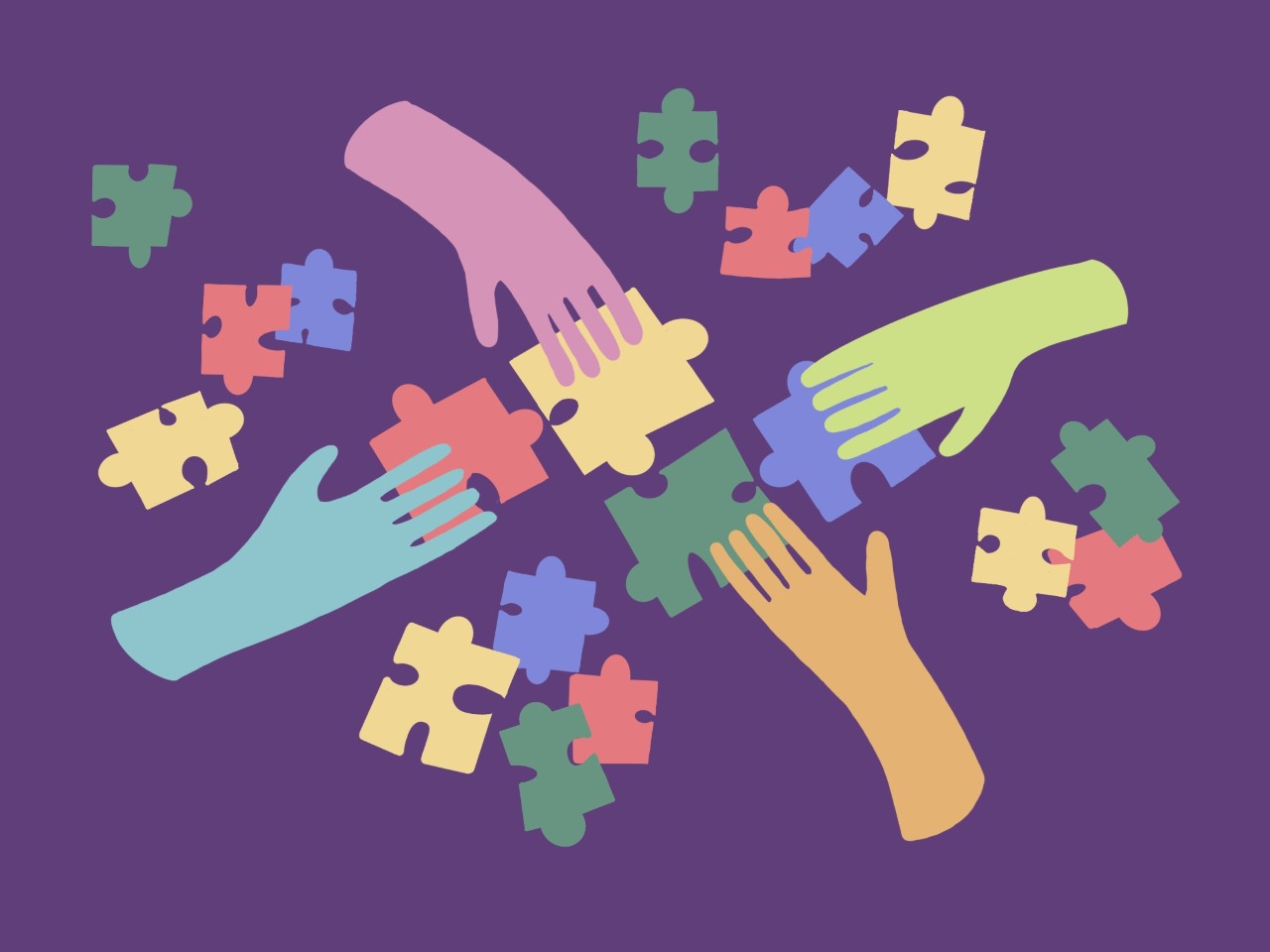
When it comes to career opportunities, where we draw the line on what is ‘fair’ can seem arbitrary. While some individuals find it difficult to admit that they got their internship through a family member or family friend, others have no problem with resourcing their network. As someone who identifies as the former, anything associated with nepotism has always felt wrong.
When it comes to career opportunities, where we draw the line on what is ‘fair’ can seem arbitrary. While some individuals find it difficult to admit that they got their internship through a family member or family friend, others have no problem with resourcing their network. As someone who identifies as the former, anything associated with nepotism has always felt wrong.

Illustration by Arianna Cavalli

Illustration by Arianna Cavalli
A while ago, I opened my inbox to find an email from a relative wishing me a happy birthday followed by an offer to help me find an internship position. This specific email never got a response and still sits in my inbox gathering dust, with the flag icon I’ve set next to it as a continuous reminder. For some reason, the idea of using family connections in this way leaves a bad taste in my mouth.
When talking with others that share this view, the same set of reasons are mentioned. We feel undeserving, as if we were taking a shortcut, rather than using our own abilities and efforts. Some of us may consider it unethical because we feel like the opportunity wasn’t earned through our own abilities, but rather through who we know. This leads us to question whether we’re taking someone else’s place, someone who may be more skilled and therefore more deserving. While these are all legitimate considerations, I have found myself more often than not exhibiting what I like to refer to as ‘false modesty’, where I unnecessarily exaggerate my lack of abilities compared to others.
Our generation is plagued by individuals with imposter syndrome, convinced that they are frauds, waiting for the day they’ll be found out as incompetent, despite actually being successful (“APA Dictionary of Psychology”, 2022). In the present climate, with social media bombarding us with images of high-achieving individuals, it doesn’t surprise me that many of us feel like we are not good enough, or – more importantly – not doing enough. For some students, being constantly busy and under pressure 24/7 is the norm. Burnout no longer seems to be exclusive to those above the age of 40, working in the financial sector, but something a 20-something-year-old at university has experienced multiple times by the time they graduate. It’s almost as if we need the exhaustion as some kind of proof of our diligence. So, when an opportunity seemingly falls into our lap, we’re reluctant to accept it. It almost feels too easy.
“Why is it that some of us are convinced we want to do everything on our own?”
Some theories on self-determination argue that autonomous motivation, which comes from feelings of ownership and understanding the value of one’s work, promotes wellbeing (Deci et al., 2017). However, when offered an internship or opportunity as a favour, this aspect of autonomy can’t be fulfilled, since we feel like we haven’t actively done anything to earn it.
Taking all this into account, it isn’t difficult to understand why instances like these make us feel like we’re engaging in practices of nepotism. Bellow (2003) refers to nepotism as ‘favoritism based on kinship’ (p.11). We only need to look at Hollywood to see that nepotism is still very much a part of society today. One classic example is the Kardashian family, where simply being born under the name ensures that no business idea is unfeasible and no doors remain closed to you.
Interestingly, Bellow (2003) goes on to refer to another form of nepotism, wherein he argues that individuals make particular career decisions based on familiar background, such as their parents’ occupations. Children of doctors for example may be more inclined to study medicine at university. One study found that 44% of applicants for medical school at Göttingen University had a medical background, with the majority of them with parents as physicians (Simmenroth-Nayda & Görlich, 2015). While this type of nepotism sounds questionable, some argue for the presence of an intergenerational accumulation of knowledge (referred to as ‘science capital’; Archer et al, 2013). The fact that a child coming from a family of doctors may become a more successful doctor in the future will be due to a culmination of factors (e.g. exposure, parental involvement, or career prospects). This makes the entire concept far more structural, complex, and detached from the classic idea of nepotism, where active influence on the part of the family is involved. Evidently, once we start to take aspects such as ‘science capital’ into account, the line between what is or isn’t nepotism starts to get blurry. As a result, the response to the question of what should be considered immoral also becomes ambiguous.
So where does this all leave us?
The issue of favouritism and/or nepotism is not a novel one, and many companies and organisations include strict policies to avoid such practices. Whether these policies successfully curb these practices is difficult to determine, since it will naturally vary depending on the country or context. The reality is, if we loosen the constraints of our definition of nepotism to include non-relatives, we see that these practices are omnipresent in society, whether for better or worse.
“They’ve only given you the keys to the car, but in the end you are still the one that needs to drive it.”
When considering what is right or wrong, it is important to distinguish between handouts that guarantee incompetent individuals high positions and an open door that gives you the chance to prove yourself. Receiving an internship because someone you know has vouched for you is common practice. They’ve only given you the keys to the car, but in the end you are still the one that needs to drive it. I’ve learned that there’s no need to disqualify myself by rejecting an offer from a relative that knows me, since an opportunity of this nature could equally be achieved through an acquaintance or colleague in my network. Furthermore, while getting an internship from someone may feel one-sided, reciprocity tends to play a strong role in interpersonal relationships. Who’s to say that I won’t be contacted in the future by the same individual, who has helped me out in the past, asking for a favour in return? As social beings, it is inherently human to seek out connections and use them to our advantage – in all kinds of contexts.
For the time being, I’ll likely continue to question whether utilising personal connections is immoral, whether partaking in these practices means I don’t recognise my privilege, and whether I am contributing to inequality. The truth is, my stance on the matter will unlikely change the fact that the world continues to function on these practices. Whether we feel uncomfortable or not, others will continue to participate in some form of opportunism, so why should we punish ourselves? Ultimately, the responsibility of controlling for nepotism should lie in the hands of the companies and organisations hiring, and not the individuals being hired. <<
References
– APA Dictionary of Psychology. Dictionary.apa.org. (2022). Retrieved 8 September 2022, from https://dictionary.apa.org/impostor-phenomenon.
– Archer, L., DeWitt, J., & Willis, B. (2013). Adolescent boys’ science aspirations: Masculinity, capital, and power. Journal Of Research In Science Teaching, 51(1), 1-30. https://doi.org/10.1002/tea.21122
– Bellow, A. (2003). In Praise of Nepotism. Doubleday.
– Deci, E., Olafsen, A., & Ryan, R. (2017). Self-Determination Theory in Work Organizations: The State of a Science. Annual Review Of Organizational Psychology And Organizational Behavior, 4(1), 19-43. https://doi.org/10.1146/annurev-orgpsych-032516-113108
– Simmenroth-Nayda, A., & Görlich, Y. (2015). Medical school admission test: advantages for students whose parents are medical doctors?. BMC Medical Education, 15(1). doi: 10.1186/s12909-015-0354-x
A while ago, I opened my inbox to find an email from a relative wishing me a happy birthday followed by an offer to help me find an internship position. This specific email never got a response and still sits in my inbox gathering dust, with the flag icon I’ve set next to it as a continuous reminder. For some reason, the idea of using family connections in this way leaves a bad taste in my mouth.
When talking with others that share this view, the same set of reasons are mentioned. We feel undeserving, as if we were taking a shortcut, rather than using our own abilities and efforts. Some of us may consider it unethical because we feel like the opportunity wasn’t earned through our own abilities, but rather through who we know. This leads us to question whether we’re taking someone else’s place, someone who may be more skilled and therefore more deserving. While these are all legitimate considerations, I have found myself more often than not exhibiting what I like to refer to as ‘false modesty’, where I unnecessarily exaggerate my lack of abilities compared to others.
Our generation is plagued by individuals with imposter syndrome, convinced that they are frauds, waiting for the day they’ll be found out as incompetent, despite actually being successful (“APA Dictionary of Psychology”, 2022). In the present climate, with social media bombarding us with images of high-achieving individuals, it doesn’t surprise me that many of us feel like we are not good enough, or – more importantly – not doing enough. For some students, being constantly busy and under pressure 24/7 is the norm. Burnout no longer seems to be exclusive to those above the age of 40, working in the financial sector, but something a 20-something-year-old at university has experienced multiple times by the time they graduate. It’s almost as if we need the exhaustion as some kind of proof of our diligence. So, when an opportunity seemingly falls into our lap, we’re reluctant to accept it. It almost feels too easy.
“Why is it that some of us are convinced we want to do everything on our own?”
Some theories on self-determination argue that autonomous motivation, which comes from feelings of ownership and understanding the value of one’s work, promotes wellbeing (Deci et al., 2017). However, when offered an internship or opportunity as a favour, this aspect of autonomy can’t be fulfilled, since we feel like we haven’t actively done anything to earn it.
Taking all this into account, it isn’t difficult to understand why instances like these make us feel like we’re engaging in practices of nepotism. Bellow (2003) refers to nepotism as ‘favoritism based on kinship’ (p.11). We only need to look at Hollywood to see that nepotism is still very much a part of society today. One classic example is the Kardashian family, where simply being born under the name ensures that no business idea is unfeasible and no doors remain closed to you.
Interestingly, Bellow (2003) goes on to refer to another form of nepotism, wherein he argues that individuals make particular career decisions based on familiar background, such as their parents’ occupations. Children of doctors for example may be more inclined to study medicine at university. One study found that 44% of applicants for medical school at Göttingen University had a medical background, with the majority of them with parents as physicians (Simmenroth-Nayda & Görlich, 2015). While this type of nepotism sounds questionable, some argue for the presence of an intergenerational accumulation of knowledge (referred to as ‘science capital’; Archer et al, 2013). The fact that a child coming from a family of doctors may become a more successful doctor in the future will be due to a culmination of factors (e.g. exposure, parental involvement, or career prospects). This makes the entire concept far more structural, complex, and detached from the classic idea of nepotism, where active influence on the part of the family is involved. Evidently, once we start to take aspects such as ‘science capital’ into account, the line between what is or isn’t nepotism starts to get blurry. As a result, the response to the question of what should be considered immoral also becomes ambiguous.
So where does this all leave us?
The issue of favouritism and/or nepotism is not a novel one, and many companies and organisations include strict policies to avoid such practices. Whether these policies successfully curb these practices is difficult to determine, since it will naturally vary depending on the country or context. The reality is, if we loosen the constraints of our definition of nepotism to include non-relatives, we see that these practices are omnipresent in society, whether for better or worse.
“They’ve only given you the keys to the car, but in the end you are still the one that needs to drive it.”
When considering what is right or wrong, it is important to distinguish between handouts that guarantee incompetent individuals high positions and an open door that gives you the chance to prove yourself. Receiving an internship because someone you know has vouched for you is common practice. They’ve only given you the keys to the car, but in the end you are still the one that needs to drive it. I’ve learned that there’s no need to disqualify myself by rejecting an offer from a relative that knows me, since an opportunity of this nature could equally be achieved through an acquaintance or colleague in my network. Furthermore, while getting an internship from someone may feel one-sided, reciprocity tends to play a strong role in interpersonal relationships. Who’s to say that I won’t be contacted in the future by the same individual, who has helped me out in the past, asking for a favour in return? As social beings, it is inherently human to seek out connections and use them to our advantage – in all kinds of contexts.
For the time being, I’ll likely continue to question whether utilising personal connections is immoral, whether partaking in these practices means I don’t recognise my privilege, and whether I am contributing to inequality. The truth is, my stance on the matter will unlikely change the fact that the world continues to function on these practices. Whether we feel uncomfortable or not, others will continue to participate in some form of opportunism, so why should we punish ourselves? Ultimately, the responsibility of controlling for nepotism should lie in the hands of the companies and organisations hiring, and not the individuals being hired. <<



